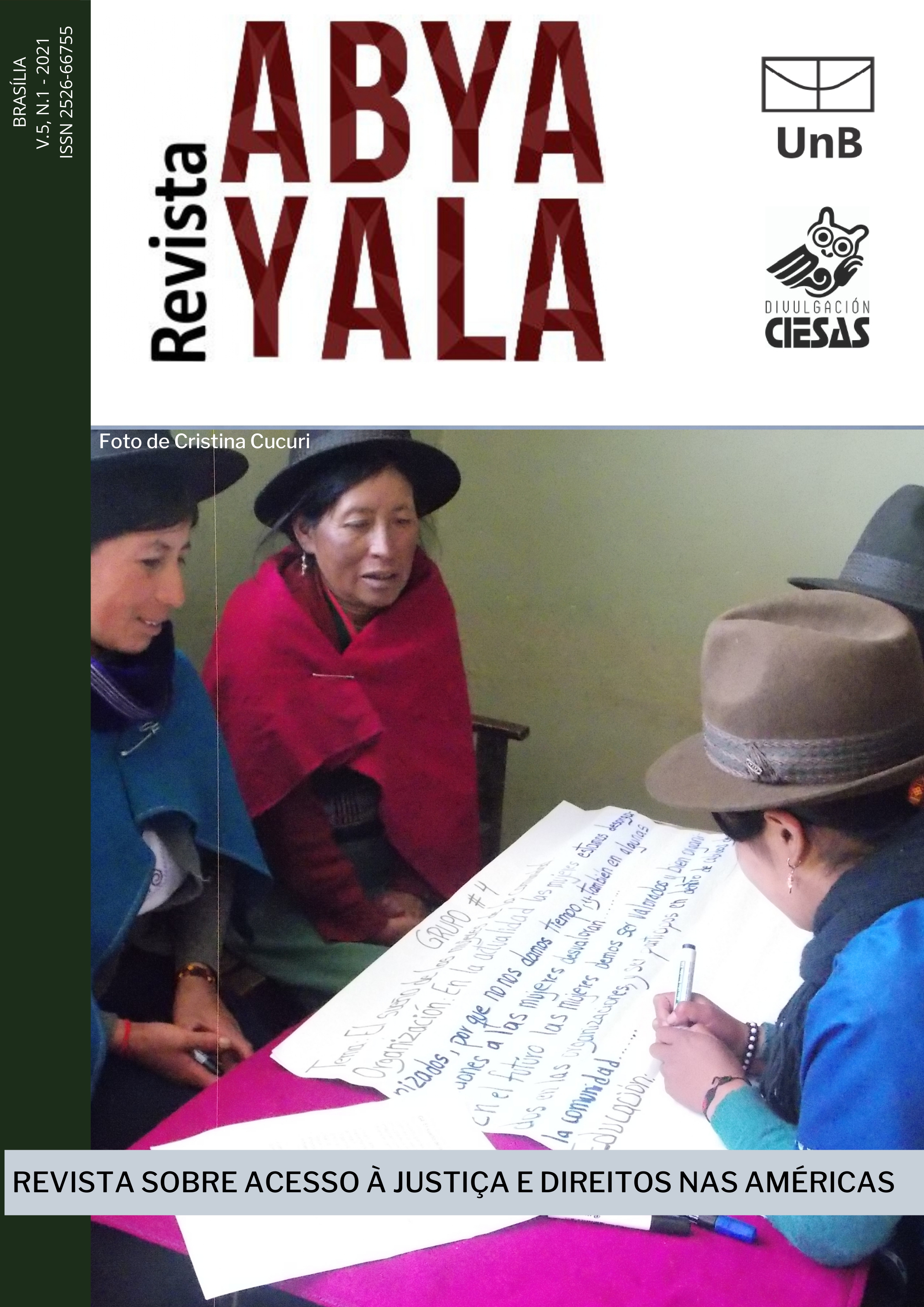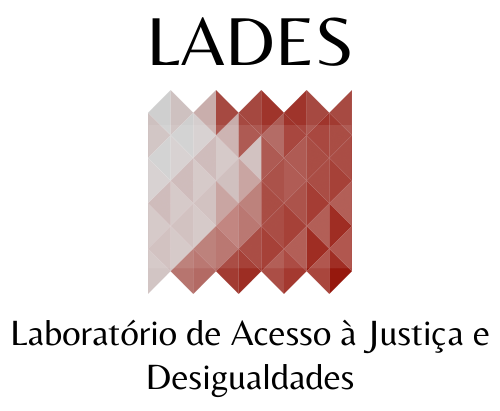PLURALISMO JURÍDICO NA COLÔMBIA
Aplicações jurisdicionais edificantes
DOI:
https://doi.org/10.26512/abya-yala.v5i1.38192Palavras-chave:
Jurisdição, pluralismo jurídico, paradoxo.Resumo
O presente trabalho tem como objetivo abordar o desenvolvimento do pluralismo jurídico na Colômbia e relatar as transformações ocorridas desde a constituição de 1991, em dois casos marcados pela relação interjurisdicional entre juízes de diferentes instâncias, autoridades administrativas e povos indígenas. Dada a natureza do Estado frente à diversidade cultural, é pertinente examinar, por meio de jurisprudência e ações judiciais e administrativas, o reconhecimento e avaliação dos diversos princípios e procedimentos normativos que se aplicam para efetivar ou não a política de reconhecimento como mandato constitucional e, as tensões que a oficialização e legalização dos próprios direitos geram ao longo do tempo. Por isso, sem negar as dificuldades objetivas de uma desigualdade material dos povos indígenas, abertamente inconstitucional, a resolução dos dois conflitos culturais e normativos apresentados neste trabalho revela-se a prova conclusiva de um paradoxo indiscutível.
Palavras-chave: Jurisdição, pluralismo jurídico, paradoxo.
Downloads
Referências
COUTINHO, Carlos Nelson. “Notas sobre pluralismo”. Conferencia presentada en el Encontro Nacional da Associação Brasileira de Ensino do Serviço Social. Out., 1990, pp. 2-3.
GUERRA C, Wilder. “El dolor de Antígona”. El Espectador. Mayo 20 del 2020.
GURVITCH, Georges. La déclaration des droits sociaux. New York: La Maison Française, 1944
OQUENDO B., Catalina. “Los muertos sagrados de los wayúu”, En: El Tiempo (Cultura y entretenimiento) Bogotá: 3 de enero, 2014.
PAZ R, Carmen Laura. “Los ritos de muerte y dobles enterramientos en el pueblo wayuu. Interacción y Perspectiva”. En: Revista de Trabajo Social, v. 8, n. 1, pp. 67-92, enero-junio, 2018 Universidad de Zulia Facultad de ciencias políticas y jurídicas.
PAZ R, Carmen Laura. “Los wayúu: Interacción y Perspectiva”. En: Revista de Trabajo Social, v. 8, n. 1, enero-junio, 2018.
SÁNCHEZ B., Esther y JARAMILLO SIERRA, Isabel Cristina. La Jurisdicción Especial Indígena. Bogotá: Procuraduría General de la Nación. Instituto de Estudios del Ministerio Público, 2007
SÁNCHEZ B., Esther., ¿La cultura como clonación? Identidades e Identificaciones. Tomo II. Bogotá: Ministerio de Salud. Instituto Colombiano de Bienestar Familiar - ICBF. Dirección de Gestión Territorial. Dirección Técnica, 2002.
SÁNCHEZ B., Esther. Derechos Propios. Ejercicio legal de la jurisdicción especial indígena en Colombia. Bogotá: Procuraduría General de la Nación. Instituto de Estudios del Ministerio Publico, 2004.
SÁNCHEZ B., Esther. “El pluralismo jurídico de tipo igualitario nace, crece, se reproduce o muere. El caso colombiano”. En: BALDI, César Augusto. Aprender desde o Sul. Novas Constitucionalidades, Pluralismo Jurídico e Plurinacionalidade. Belo Horizonte: Editora Fórum, 2015.
SÁNCHEZ B., Esther. Estudio comparado para OEI “Justicia propia y derechos indígenas”. Ejercicio de la Jurisdicción especial en Argentina, Brasil, Bolivia, Perú y Costa Rica. Bogotá: 2020. (Inédito).
SANTOS, Boaventura de Sousa. “Subjetividad, ciudadanía y emancipación “. En: Revista El Otro Derecho Nº 15. Instituto Latinoamericano de Servicios Legales Alternativos, ILSA. Bogotá. 1994.
SANTOS, Boaventura de Souza. Estado Derecho y Luchas Sociales. ILSA. Dupligráficas. 1991.
WOLKMER, Antonio Carlos. Pluralismo jurídico. Fundamentos de una nueva cultura del Derecho. 2ª Edición. Traducción David Sánchez Rubio. Madrid: Editorial Dykinson S. L., 2018.
Downloads
Publicado
Como Citar
Edição
Seção
Licença
Copyright (c) 2021 Abya-yala: Revista sobre Acesso à Justiça e Direitos nas Américas

Este trabalho está licenciado sob uma licença Creative Commons Attribution-NonCommercial 4.0 International License.
O envio de contribuições para Abya Yala implica a cessão de direitos autorais e de publicação à Revista, observando a Atribuição-NãoComercial 4.0 Internacional (CC BY-NC 4.0) adotada.
O conteúdo dos textos submetidos à revista e por ela publicados serão de inteira responsabilidade de seus respectivos autores.
Copyright: https://creativecommons.org/licenses/by-nc/4.0/deed.pt_BR


 Este trabalho está licenciado como Atribuição Não Comercial 4.0 Internacional (CC BY-NC 4.0)
Este trabalho está licenciado como Atribuição Não Comercial 4.0 Internacional (CC BY-NC 4.0) 








